Join us at the IDS 2026 Congress & AISG 2026 Meeting to hear an amazing line up of speakers sharing their knowledge and expertise and learn about the latest advances in diabetes scientific research.
2026 Eisenbarth Award and Lecture
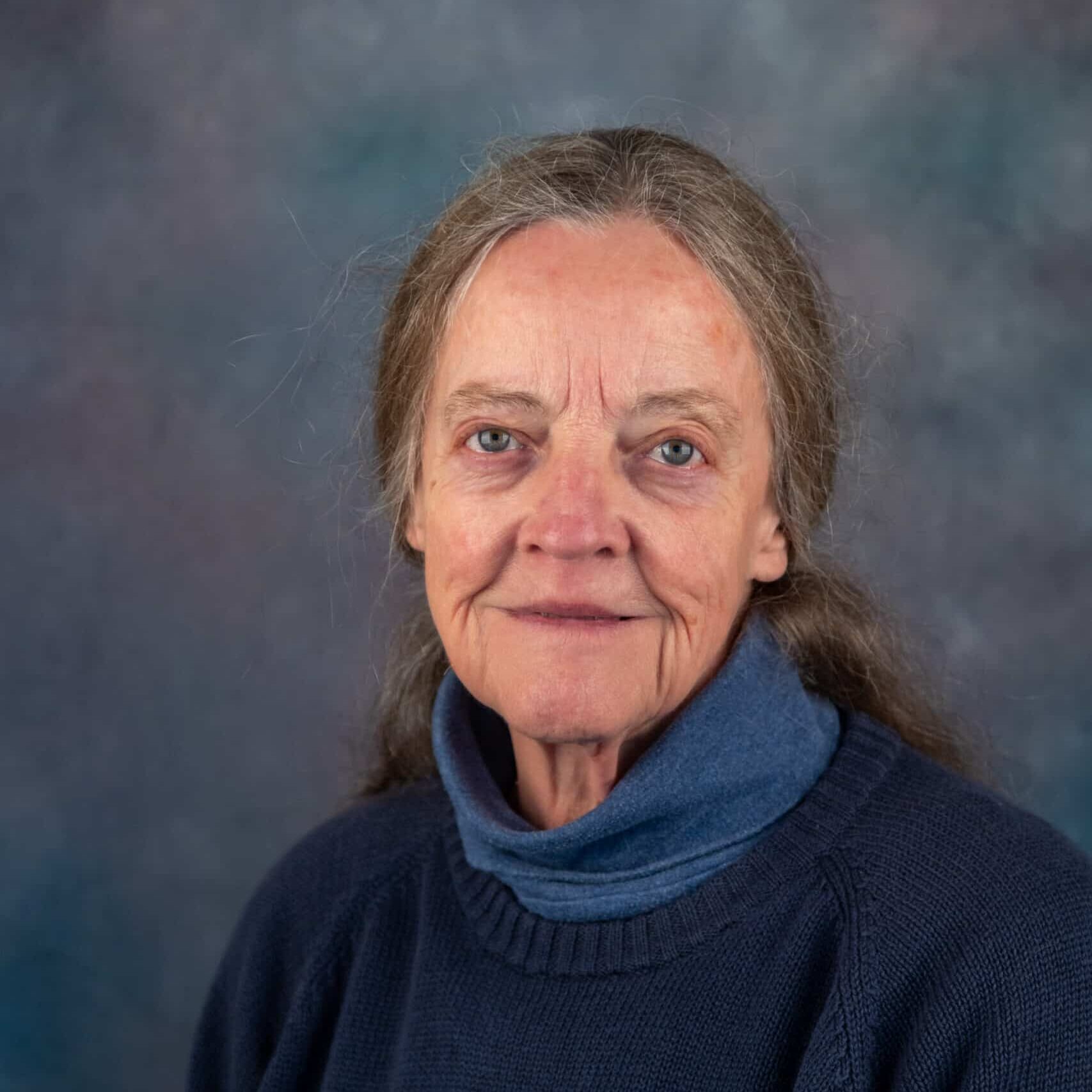
Professor Kathryn Haskins
Biography
2026 Eisenbarth Award and Lecture
Recipient: Kathryn Haskins
Professor Kathryn Haskins is a distinguished academic with a strong focus on immunology and molecular biology. Her research spans various areas, including T cell, Cytotoxic T cell, Antigen-presenting cell, and Antigen. Haskins has made significant contributions to the understanding of Type 1 diabetes, Islet, Autoimmunity, and Insulin. Her work often intersects with the fields of NOD mice, CD8, and CD4 T cells, highlighting her expertise in the broader field of Immunology. Haskins' research has been recognized with numerous citations and publications, reflecting her impact on the scientific community.
Bottazo Award Lecture
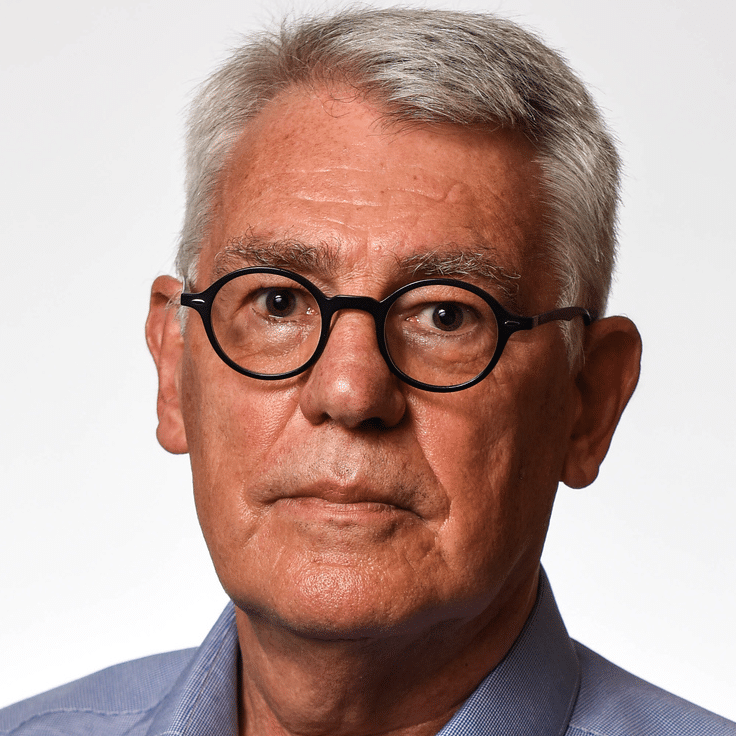
Professor Decio L. Eizirik
Biography
Bottazo Award Lecture
Recipient: Professor Decio L. Eizirik
Decio L. Eizirik, M.D., Ph.D., is Professor at the ULB center for Diabetes research in Brissles, Beligium and has published >430 full papers and reviews with an h-index of 97. He has received several national and international prizes, including the Juvenile Diabetes Research Foundation (JDRF) Diabetes Care Research Award, 1998, the “2012 Albert Renold Prize Lecture for Outstanding Achievements in Research on the Islets of Langernhans” awarded by the EASD, Berlin, Germany, 10.2012, the “2013 Rumbough Award for outstanding achievements in type 1 diabetes research”, awarded by the JDRF, New York, 12.2013 and the George Eisenbarth Memorial Lecture, awarded by the nPOD, USA, 02.2023. Dr Eizirik has served as Honorary (Scientific) Secretary of the EASD and as Deputy Editor of Diabetologia. His research focus on the mechanisms of pancreatic beta cell dysfunction and death in type 1 diabetes, on the “dialogue” between beta cells and the immune system and on novel approaches to protect beta cells in T1D.
Helen Thomas Memorial Lecture
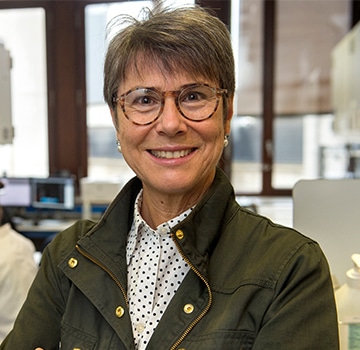
Professor Chantal Mathieu
Biography
Helen Thomas Memorial Lecture
Recipient: Professor Chantal Mathieu
Professor Chantal Mathieu is a physician-scientist who has contributed to the field of diabetes and endocrinology through basic and clinical research. Her basic research work focuses on pathogenesis and prevention of type 1 diabetes. Prof. Mathieu’s clinical work involving new products and treatment paradigms in diabetes, such as new insulins, adjunct therapies and diagnosis of gestational diabetes have made her a speaker in international fora. Prof. Mathieu coordinates the European project ‘INNODIA’ on biomarker discovery and intervention studies in type 1 diabetes. Prof. Mathieu is president of EASD and vice-president of the European Diabetes Forum.

Dr Peter Aachenbach
Biography
Dr Peter Aachenbach
Peter Achenbach research focus on the prevention, diagnosis, and pathogenesis of type 1 diabetes, particularly in children.
He studied medicine at the University of Leipzig, earning his doctoral degree in 1998, followed by research training in Germany and the USA, including a fellowship at the Barbara Davis Center for Childhood Diabetes in Colorado.
Currently, he serves as Deputy Director at the Institute of Diabetes Research, Helmholtz Munich, and Adjunct Professor at the Technische Universität München (TUM). He also is investigator in major research initiatives such as the German Center for Diabetes Research (DZD), GPPAD, INNODIA, and EDENT1FI.
Dr. Achenbach's expertise lies in immunology, autoantibody diagnostics, and early intervention in type 1 diabetes. He has been instrumental in numerous large-scale studies including the Fr1da study and T1DI.
Over his career, Achenbach has contributed significantly to shaping global strategies for type 1 diabetes prevention, serving on editorial boards (e.g., Diabetologia), steering committees (e.g., DASP/IASP), and international collaborations advancing autoimmune diabetes research.

Dr Robert "Bob" Anderson
Biography
Dr Robert "Bob" Anderson
Bob Anderson is a leading gastroenterologist, immunologist, and biotechnology innovator whose work has impacted the scientific and clinical landscape of celiac disease.
Originally from New Zealand, Dr. Robert “Bob” Anderson completed his medical and doctoral training there before undertaking gastroenterology specialization in Melbourne, Australia, and post-doctoral research at Oxford University, where he pioneered studies into gluten-specific T cells. His subsequent work at the Walter and Eliza Hall Institute of Medical Research defined immune mechanisms of celiac disease, identifying the key gluten epitopes that activate pathogenic T cells and establishing celiac disease as a systemic autoimmune condition.
As scientific founder and executive of several biotech ventures — including Nexpep, ImmusanT, and now Novoviah Pharmaceuticals and JM Clinical, where he serves as Co-Founder and Director, and as Co-Founder and Chief Medical Director, respectively — Dr. Anderson has guided programs translating immunology into tangible patient applications. He led the development of Nexvax2, the first antigen-specific immunotherapy for celiac disease, advancing it through global clinical trials. Currently, through Novoviah Pharmaceuticals, he is advancing next-generation T-cell–based diagnostics that promise earlier and more accurate disease detection and monitoring.
Dr. Anderson serves as President of the International Society for the Study of Celiac Disease (ISSCD) and as the Principal Science & Innovation Advisor to the Celiac Disease Foundation. His scientific leadership has been recognized worldwide, including the Celiac Disease Foundation Prize for Excellence in Celiac Disease Research and the Mäki Celiac Disease Tampere Prize for outstanding contributions to the field of gluten-related disorders.
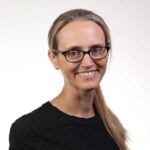
Dr Melena Bellin
Biography
Dr Melena Bellin
Dr. Melena Bellin is a physician-scientist and tenured Professor in the Department of Pediatrics, Division of Endocrinology, and the Department of Surgery at the University of Minnesota. Her research focuses on cell therapy for patients with type 1 diabetes and surgical diabetes, as well as overlap between pancreatitis and diabetes. She has been a leader in the field of islet autotransplantation, including leading 4 randomized clinical trials of novel therapies to improve islet engraftment, defining long-term outcomes after total pancreatectomy with islet autotransplantation, and advancing total pancreatectomy with islet autotransplantation as a treatment option for children with hereditary pancreatitis. She is a site PI for the University of Minnesota in the Chronic Pancreatitis Diabetes Pancreatic Cancer Consortium and the Type 1 Diabetes Acute Pancreatitis Consortium which she also Co-Chairs. She has been an investigator on multiple islet allotransplant trials for Type 1 Diabetes including the CIT multicenter trials in the U.S. and on early stem cell derived islet therapies. She is a member of the Executive Committee for the Collaborative Islet Transplant Registry.
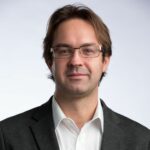
Dr Richard Benninger
Biography
Dr Richard Benninger
Dr Benninger received his PhD in Physics from Imperial College London and then completed postdoctoral training at Vanderbilt University in Molecular Physiology and Biophysics. He became an Assistant Professor of Biomedical Engineering at the University of Colorado in 2011, establishing his laboratory at the Barbara Davis center for Diabetes. His research has focused on applying biophysical approaches towards understanding how cellular heterogeneity and intra-islet communication underlie the regulation of insulin and glucagon secretion and its dysregulation in diabetes. His research has also included developing and applying ultrasound imaging diagnostics for type1 diabetes. Dr Benninger is also excited about promoting research and training at the interface between biomedical engineering and diabetes research.

Prof Maria Bettini
Biography
Prof Maria Bettini
Dr. Maria Bettini earned her Ph.D. in Immunology from Emory University in Atlanta, GA. She subsequently completed postdoctoral training in autoimmunity with Dr. Brian Evavold at Emory University and Dr. Dario Vignali at St. Jude Children’s Research Hospital. She is now a Professor of Pathology in the Division of Microbiology and Immunology at the University of Utah. Dr. Bettini’s research focuses on understanding how self-tolerance is lost in type 1 diabetes and how this autoimmune process might be halted or reversed. T cell responses in autoimmunity develop under a unique set of conditions: relatively low TCR affinity, lack of danger signals, and chronic antigen stimulation. Dr. Bettini’s lab is trying to understand how autoimmune T cells and suppressive regulatory T cells navigate these conditions to persist or fail.

Prof Todd Brusko
Biography
Prof Todd Brusko

Dr Karen Cerosaletti
Biography
Dr Karen Cerosaletti
Karen Cerosaletti received a bachelor’s degree in Biology from the College of Saint Rose in 1982 and her PhD in Immunology from the University of Rochester School of Medicine and Dentistry in 1990. After postdoctoral work in somatic cell genetics in the Molecular Medicine Program at Fred Hutchinson Cancer Research Center in Seattle, she joined Benaroya Research Institute (BRI) in 1995. She is currently Director of the Center for Translational Immunology and an Associate Member at BRI. Dr. Cerosaletti’s research is focused on the role of the adaptive immune system in the development and progression of immune mediated diseases and the response to treatment with a focus on genomic signatures and TCR repertoires of antigen specific T cell in type 1 diabetes.

Dr Jason Chien
Biography
Dr Jason Chien
Jason is the Chief Medical Officer at Mozart Therapeutics. As a physician scientist, he brings nearly 30 years of experience from the academic, healthcare, and biopharmaceutical industry. Prior to Mozart, Jason was Vice President of Respiratory Infection R&D Strategy and Infectious Diseases Clinical Translational Sciences at Janssen, Pharmaceutical Companies of Johnson & Johnson, where he oversaw the development of a preclinical and clinical pipeline that introduced innovative platforms and strategic concepts as well as extended traditional infectious diseases approaches. Prior to Janssen, Jason led the clinical development team at Gilead Sciences that advanced early and late phase programs in lung fibrosis, respiratory infections and immunology-driven diseases. His industry career is preceded by a distinguished NIH-funded academic career at the University of Washington and the Fred Hutchison Cancer Research Center. He obtained his undergraduate degree from University of Michigan, his Doctorate of Medicine from UMDNJ-New Jersey Medical School, and his Masters of Science in Genetic Epidemiology from University of Washington. His post-graduate training includes Internal Medicine Residency and Infectious Diseases Fellowship at Case Western Reserve University, and Pulmonary and Critical Care Medicine Fellowship at the University of Washington.

Prof Jennifer Couper
Biography
Dr Jennifer Couper
Jenny Couper is a practising paediatric endocrinologist and Head of Paediatrics, Adelaide University, South Australia. She leads the Environmental Determinants of Islet Autoimmunity (ENDIA) nation-wide consortium which follows children at-risk from the pregnancy. She is Principal Investigator of the Australian Islet Autoantibody Monitoring Program and Registry.

Dr Jayne Danska
Biography
Dr Jayne Danska
My research goals are to 1) create a comprehensive understanding of genetic and microbiome-mediated control of autoimmune disease, with a focus on type 1 diabetes, 2) to understand how to cancer cells subvert innate immune surveillance, and 3) to use this knowledge to reduce the burden of autoimmunity and cancer in children and young adults. Our goals are to to discover immune-mediated mechanisms of autoimmune disease, particularly Type 1 diabetes (T1D), and acute leukemia, and to advance development of biomarkers and therapies for prevention and treatment of these diseases. Recent studies have sought to define an association between changes in gut microbiome composition and T1D onset or the appearance of islet autoantibodies (IAB), a hallmark of pre-diabetes. While the fecal microbiota of participants with multiple IAB or with new onset T1D display reduced diversity, these studies have not produced a consensus on the relationship between specific bacteria taxa and T1D development. We developed a platform to investigate human immune responses to gut microbes, testing the hypothesis that anti-commensal antibody (ACAb) responses can reveal how host genotype, gut microbes and the systemic immune system interact to regulate islet autoimmunity. In collaboration with Trial Net we studied ACAb response patterns associated with time to T1D diagnosis TN10 trial participants given teplizumab (anti-CD3 Mab). These studies provide the foundations for our proposed KQ-1 Consortium studies. Development of my research program has supported the training and mentorship of outstanding post-BSc, post-MSc, post-MD and post-PhDs. In my lab, recruitment, communication, opportunities for career advancement are modeled on current best practices to support equity, diversity and inclusion (EDI). As Associate Chief, SickKids Research Institute, we have developed measurable best practices for equitable and inclusive research design and analysis, and an inclusive work culture based upon evidence, focused discussions and feedback from staff, and an evergreen suite of resources for faculty, trainees and staff.
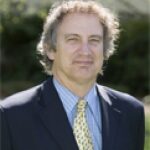
Prof Tim Davis
Biography
Prof Tim Davis
TIMOTHY DAVIS is en endocrinologist and general physician at Fremantle Hospital, and Professor of Medicine, University of Western Australia. He has had research interests in diabetes since 1978. He is principal investigator of the Fremantle Diabetes Study, a large-scale prospective study of diabetes in a community-based cohort which has been in progress since 1993 and which has produced more than 120 published papers. He also works as an Associate Investigator on the United Kingdom Prospective Diabetes Study. His research team conducts a number of epidemiological and multi-centre pharmaceutical intervention studies. He has been a past Vice-President of the Australian Diabetes Society. He is a Co-Lead of the WA Health Department’s Diabetes and Endocrinology Clinical Network, is a member of the Busselton Population Medical Research Foundation Board, and has also served on the Council and Research Committee of the NMHRC. He also serves on the Medical Services Advisory Committee and the Commonwealth Science Council.

Mario Ehlers
Biography
Mario Ehlers

Prof Josephine Forbes
Biography
Prof Josephine Forbes
Professor Josephine Forbes is an NHMRC Senior Research Fellow, Head of the Glycation and Diabetes Group and Cardiometabolic Programs at Mater Research Institute – The University of Queensland. Josephine conducts both basic and clinical research where her special interests lie in diabetes complications including nephropathy and in the pathogenesis of type 1 diabetes. Her research has attracted awards such as the Commonwealth Health Minister’s Award for Excellence in Health and Medical Research and an NHMRC Achievement Award. She has a strong commitment to the development of young researchers and in bridging the gaps between clinical and basic research by bringing together multidisciplinary teams. Josephine is also an advocate of community based programs providing education and opportunities to be involved in health research to the general public including to school aged participants. She completed her PhD in Melbourne at the Royal Children’s Hospital in 2000 followed by post-doctoral studies at the Austin Hospital (Dept of Medicine, University of Melbourne) and then the Baker IDI Heart and Diabetes Institute in Melbourne. Josephine sits on a number of panels including the JDRF Australia Professional Advisory Panel and serves on grant review panels both within Australia (eg NHMRC, DART) and internationally (eg JDRF, DVA, MRC).

Prof Iria Gomez-Tourino
Biography
Prof Iria Gomez-Tourino
Iria Gomez-Tourino is Professor of Biochemistry and Molecular Biology and Principal Investigator of the Immunity and Small Molecules lab, at the Center for Research in Molecular Medicine and Chronic Diseases (CIMUS) of the University of Santiago de Compostela (Spain). My research has always focused on the molecular mechanisms that drive autoimmunity in Type 1 Diabetes. We made significant contributions to the autoimmunity field, specifically in autoantigen discovery, autoimmune TCR profiling and autoantigen-specific T cell phenotyping.
My lab is focused in understanding the molecular mechanisms of autoimmunity, and how small molecules could be involved in both fostering and/or disrupting the functioning of the immune system, employing high-throughput techniques. For this, I received the Career Development Award from Breakthrough T1D, to identify self-metabolites recognized by MAIT cells in T1D. Additionally, and taking advantage of the excellent drug screening capabilities of our research centre, we also work in drug discovery in autoimmunity, as we identified a portfolio of novel and repurposed small molecules with previously unknown immunomodulatory properties.
I have been awarded several fellowships and awards, including two prestigious Marie Sklodowska-Curie fellowships (King’s College London, UK, 2013, and USC, Spain, 2018), and the Award to Young Researchers by the Royal Academy of Sciences of Galicia (2025). I am European Union Expert Evaluator, Nobel Laureate Lindau alumni, and elected member of the Board of Directors of the Spanish Society of Immunology (2022-2026). I am also very active in outreach activities.

Prof Victor Greiff
Biography
Prof Victor Greiff
Victor Greiff is a Professor for Systems Immunology at the University of Oslo since 2018. His group develops machine learning, computational, and experimental tools for immune-repertoire-based in silico immunodiagnostics and immunotherapeutics discovery and design.
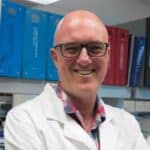
Prof Shane Grey
Biography
Prof Shane Grey
Dr Shane T. Grey; Professor in Science UNSW; Head of the School of Biotechnology and Biomolecular Sciences, UNSW. Grey received his PhD immunology training at Monash University and his post-doctoral training as a transplant immunologist at Harvard Medical School, USA, where he moved through the ranks to Instructor in Surgery (1998) and later to Assistant Professor (2001). He was recruited to the Garvan Institute (2004) and then to UNSW (2023) where his key research interest lies in the genetic control of inflammation, particularly how the TNFAIP3 gene and NF-kB-system interact to impact islet cell inflammation, islet transplant rejection and immunological tolerance. Grey is very keen to translate fundamental findings to clinical impact through development of aTNFAIP3-gene therapy approach to advance immunosuppression free islet cell transplantation. Further efforts include contributing to the global road map towards new therapies for T1D as an invited member of the JDRF Encapsulation Consortium (2017-2023); as a lead investigator on Australia's first clinical islet transplant trial; leadership of national NHMRC/JDRF/ARC research programs for T1D; and as the founder of the Australian Islet Study Group (AISG: running yearly since 2009). Grey has been recognised with the international Transplantation Society's “Key Opinion Leader in Transplantation” Award; a national “JDRF/Macquarie Group Foundation Diabetes Research Innovation Award”, and the Transplantation Society of Australia & NZ premier award the “Ian McKenzie Prize” for 'outstanding contributions to transplantation'. His over 100 publications, with more than 12,000 citations, reflect a sustained contribution to immunology and translational science. Grey is also committed to equity in science, with a strong focus on supporting women in research— evidenced by his active involvement in the Franklin Women mentoring program and his leadership in inclusive policy reform. Beyond the lab, he’s an avid adventurer who loves trekking, camping, and exploring remote, off-grid places.

Prof Jenny Gunton
Biography
Prof Jenny Gunton
Professor Jenny Gunton heads the Centre for Diabetes, Obesity and Endocrinology Research (CDOER) and Westmead Institute for Medical Research (WIMR). She is Chair of Medicine at Westmead Hospital and a clinical endocrinologist / diabetologist.
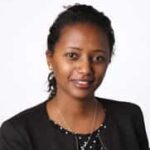
A/Prof Melkam Kebede
Biography
A/Prof Melkam Kebede
Melkam Kebede is an islet biologist with a strong interest in uncovering the causes of pancreatic beta-cell dysfunction in type 2 diabetes. She leads the Islet Biology and Metabolism Laboratory at the Charles Perkins Centre, University of Sydney. Her research focuses on the pancreatic beta-cell, particularly the mechanisms governing insulin secretory granule biogenesis, maturation, stability, and secretion. Her laboratory applies a combination of mass spectrometry, flow cytometry, microscopy, and molecular and cell biology approaches to investigate these processes in cell and animal models of type 2 diabetes. Her work has been supported by the Diabetes Australia Research Program as well as NHMRC Project and Ideas Grants.
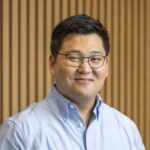
Dr Ki Wook Kim
Biography
Dr Ki Wook Kim
Dr Ki Wook Kim is a Breakthrough T1D (formerly JDRF) International Career Development Award Fellow within the Faculty of Science, based at School of Biotechnology & Biomolecular Sciences. Dr Kim completed his undergraduate degree, Honours and PhD in Molecular Biology and Genetics at the University of Sydney, for which he investigated the roles and interactions of various microRNAs and RNA silencing component proteins in the model plant, Arabidopsis thaliana. During his PhD, he accumulated extensive training in molecular research and advanced microscopy at various leading institutions including the Victor Chang Cardiac Research Institute, CSIRO and the John Curtin School of Medical Research at ANU. Since 2015, Dr Kim has transitioned to medical research, focusing on the viral causes of type 1 diabetes and human viromics (characterising all viruses infecting humans). He is the PI of the Wook Lab and leads the Viruses and Infectious Agents theme within the national Environmental Determinants of Islet Autoimmunity (ENDIA) Study, following 1,500 mother-infant pairs with a first-degree relative with type 1 diabetes across Australia (https://endia.org.au).

Dr Patrick MacDonald
Biography
Dr Patrick MacDonald
Dr. Patrick MacDonald completed his undergraduate degree in Canada at Western University and earned his PhD in Physiology from the University of Toronto in 2003. After post-doctoral training at Lund University (2003-05) and the University of Oxford (2005-06), Dr. MacDonald established his independent research laboratory in the Department of Pharmacology and the Alberta Diabetes Institute (ADI) at the University of Alberta in 2006, where he is currently Professor of Pharmacology and holds a Tier I Canada Research Chair in Islet Biology. Since 2024 he is also an Adjunct Research Professor at the University of Michigan. Dr. MacDonald’s research focuses on understanding the function of insulin-producing pancreatic islets in health and diabetes (www.bcell.org). He is particularly interested in the relationship between cellular signaling, gene expression, and membrane function. This includes relevant work in islet cell phenotyping, multi-omics, and connections between molecular profiles and cellular functions (PMID: 39357523, PMID: 39149326, PMID: 38959864, PMID: 35108513).
In 2011, Dr. MacDonald founded the ADI IsletCore biobanking program (www.isletcore.ca) which provides human research islets and tissue samples to ~170 groups worldwide, making it one of the largest single sources for this material in the world. Through collaborative efforts, this has led to the release of an online tool facilitating omics data accessibility and analysis (www.humanislets.com). In 2020 he co-founded the Canadian Islet Research and Training Network (www.islets.ca) to enhance training and collaborative opportunities amongst the academic islet biology community in Canada.

Prof Roberto Mallone
Biography
Dr Roberto Mallone
After receiving his MD PhD degree from the University of Turin (Italy) and a Postdoc with G.T. Nepom at the Benaroya Institute in Seattle, R. Mallone moved to Paris in 2005. He is currently Professor of Immunology at Université Paris Cité and Diabetologist at the Cochin Hospital. He co-leads with Dr S. You a research team at the INSERM Cochin Institute and a satellite research lab at the Indiana Biosciences Research Institute in Indianapolis. His research spans from preclinical studies with human samples and mouse models to clinical trials. It focuses on autoimmune T cells and their dialogue with pancreatic beta cells to understand T1D mechanisms and develop novel biomarkers and therapeutics. He is Board member of the EU INNODIA.org network and US nPOD Key Question task force. He is French coordinator of several ongoing trials and for setting up a screening and care pathway for preclinical T1D. He is Associated Editor of Diabetologia.

A/Prof Stuart Mannering
Biography
A/Prof Stuart Mannering

Dr Jean Claude Njabou Katte
Biography
Dr Jean Claude Njabou Katte
Dr Katte is a Research Fellow in Global Health Diabetes based at the NIHR Exeter Biomedical Research Centre (BRC) of the University of Exeter Medical School, where he holds a Translational Fellowship. His research focuses on understanding the heterogeneity in the presentation of type 1 diabetes in native and immigrant African populations.

Prof Kirsten Perrett
Biography
Prof Kirsten Perrett
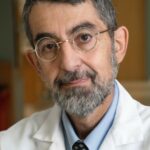
Dr Alberto Pugliese
Biography
Dr Alberto Pugliese
I have 35 years of contributions to basic/clinical research focused on the study of human type 1 diabetes (T1D). My studies are relevant to the pathogenesis, genetics, and immunology of T1D, and I have contributed to advance T1D prediction, prevention, and intervention in clinical trials and T1D treatment via transplantation. After post-doctoral training with the late George Eisenbarth, I worked at the Diabetes Research Institute, University of Miami, for 28 years (1994-2022). I joined City of Hope in late 2022. At the time of my transition, I was a tenured Professor of Medicine, Microbiology and Immunology at the University of Miami, The J. Enloe and Eugenia J. Dodson Chair in Diabetes Research, and Deputy Director of the Diabetes Research Institute. Since October 2022 I serve as Professor and Chair, Department of Diabetes Immunology, the Samuel Rahbar Endowed Chair in Diabetes & Drug Discovery, Arthur Riggs Diabetes and Metabolism Research Institute, City of Hope, Duarte, California. Here, I also serve as Director of The Wanek Family Project for Type 1 Diabetes. For over 15 years, until 2017, I served as Steering Committee member of the NIDDK Type 1 Diabetes TrialNet, a network that conducts clinical trials and natural history studies in at-risk relatives. I served as co-PI of the University of Miami TrialNet Site, Chair/vice-Chair of the of the Ancillary Study Committee/Biomarker & Mechanisms Panel (and other committees). Since 2010 I am Executive Co-Director of nPOD (Network for the Pancreatic Organ Donors with Diabetes), a tissue bank and international collaborative project procuring/examining pancreatic and lymphoid tissues from organ donors with T1D/islet autoimmunity. I have established and overseen working groups to collaboratively address major questions about T1D (autoimmunity, viruses, extra-cellular matrix, living pancreas slice, etc.).

Prof. Maria J. Redondo
Biography
Prof. Maria J. Redondo
Dr. Maria Jose Redondo is Professor of Pediatrics at Baylor College of Medicine and a pediatric endocrinologist at Texas Children’s Hospital in Houston, Texas
Dr. Redondo leads a NIH NIDDK- and Breakthrough T1D-funded research program focused on defining the heterogeneity of type 1 diabetes to improve risk prediction, refine diabetes classification, and identify individuals most likely to benefit from prevention therapies. Her work has advanced the integration of genetic information into predictive models and clinical decision-making, with the goal of improving timely and accurate diagnosis in children with overlapping diabetes phenotypes. She also directs research on how obesity and type 2 diabetes–associated genetic factors influence islet autoimmunity, accelerate progression to stage 3 type 1 diabetes, and shape disease trajectories across preclinical stages. In addition, she has contributed to the characterization of atypical forms of diabetes, supporting more precise, individualized approaches to pediatric diabetes care.

Prof Sarah Richardson
Biography
Prof Sarah Richardson
Sarah Richardson is a Professor of Cellular Biomedicine at the University of Exeter with a passionate interest in type 1 diabetes and Team Science. She leads Islet Biology Exeter (IBEx), a team of principal investigators with complementary expertise in type 1 diabetes research. Her research utilises unique pancreas biobanks and is centred around understanding the disease processes by which beta cells are targeted and destroyed. She has particular interests in how early pancreatic growth may influence the development of different forms of type 1 diabetes, and the role that enteroviruses and anti-viral responses play in the disease. She curates the Exeter Archival Diabetes Biobank, which contains the most extensive and rarest collection of pancreata from patients with recent-onset type 1 diabetes worldwide. She has held prestigious Fellowships from the Wellcome Trust and the Diabetes Research Wellness Foundation, a JDRF 5-year Career Development Award, and is now a Steve Morgan Foundation Grand Challenge Senior Research Fellow. She has contributed to seminal studies identifying factors that protect (or sensitise) beta-cells to immune attack in T1D; she has led multiple institute-based studies which have been pivotal in defining the link between enterovirus infection and T1D; and she had a leading role in research conceptualising endotypes in T1D crucial for identifying subgroups of T1D individuals most likely to respond to specific therapies or interventions.

Prof Natasha Rogers
Biography
Prof Natasha Rogers
Natasha Rogers is Professor in Nephrology and Transplantation Medicine at the University of Sydney, and a NHMRC Emerging Leader Fellow. She is Head of kidney, pancreas and islet transplantation at Westmead Hospital and a Senior Staff Specialist in Nephrology. She also runs a discovery and translational research program at the Westmead Institute for Medical Research, supported by the NHMRC, National Heart Foundation, Diabetes Australia and MRFF.
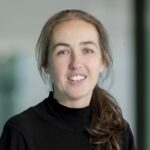
Dr Jacqui Schiesser
Biography
Dr Jacqui Schiesser
Jacqueline Schiesser is a team leader/senior research officer in the Immune Development group at the Murdoch Children’s Research Institute and an Associate Investigator at the Novo Nordisk Centre for Stem Cell Medicine (reNEW). She completed her PhD in 2013 studying human stem cell differentiation and pancreatic development at Monash University. Following this, she undertook postdoctoral studies in the laboratory of James Wells at Cincinnati Children’s Hospital Medical Center. Her current research focuses on the utilization of stem cell models of type 1 diabetes and identification of cell-surface markers for the development of stem cell-derived islet therapies.
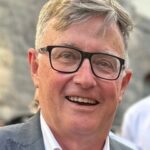
Prof Peter Shepherd
Biography
Prof Peter Shepherd
Peter Shepherd gained a PhD in Chemistry at Massey University . He undertook post doctoral studies at Harvard University before moving to a research fellowship at Cambridge University. He was next appointed as faculty at University College London where his research focussed on understanding the signalling networks inside cells and how defects in these contribute to diseases like diabetes and cancer. He moved back to a personal chair at Auckland University where his research focus includes cell signalling , metabolic disease genetics and beta-cell function. He is a member of the Asia-Pacific Diabetes and Obesity network, former editor in chief of the UK based Biochemical Journal and a fellow of the Royal Society of New Zealand
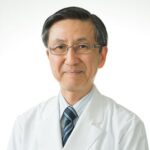
Prof Akira Shimada
Biography
Prof Akira Shimada
Professor Akira Shimada graduated from Keio University in 1986 and trained as a diabetologist from 1990 to 1993. During this period, he conducted research on type 1 diabetes using NOD mice. In 1993, he joined Professor Garry Fathman’s laboratory at Stanford University, where he continued his work with NOD mice, focusing on Th1-type immune responses.
Upon returning to Japan, Professor Shimada established an antigen-specific T-cell response system using ELISPOT and related techniques, enabling the evaluation of T-cell responses in human type 1 diabetes. His recent research interests include ketosis-prone type 2 diabetes (KPD), a condition that may share pathophysiological features with classical type 1 diabetes. Professor Shimada’s work explores the mechanisms underlying KPD’s ability to recover from diabetic ketoacidosis and return to normal glucose tolerance with early intensive insulin therapy—findings that may offer insights into potential treatments for type 1 diabetes.
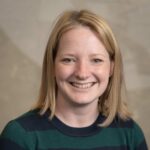
A/Prof Mia Smith
Biography
A/Prof Mia Smith
Mia Smith is an Assistant Professor in the Department of Pediatrics and Immunology and Microbiology at the Barbara Davis Center for Diabetes at the University of Colorado, Anschutz Medical Campus. The primary focus of her research is to understand the role of B cells in development of autoimmunity with a special interest on how aberrant activation of autoreactive B cells contributes to disease. Current studies in her laboratory include: 1) understanding how genetic risk alleles and environmental triggers lead to loss of B cell tolerance 2) deciphering the phenotype and function of islet-reactive B cells in young-onset T1D compared to older-onset T1D, and 3) understanding the pathogenic role of B cells in T1D, as well as other autoimmune diseases. The goal of her research is to translate findings into possible therapies to prevent or delay development of T1D.

Prof Qizhi Tang
Biography
Prof Qizhi Tang
Qizhi Tang, Ph.D., is a professor of immunology in the Diabetes Center, the Department of Surgery, the Gladstone Institute of Genomic Immunology, and the Institute of Regenerative Medicine at University of California, San Francisco. Her research focuses on developing Treg cell therapies by investigating basic mechanisms of Treg function and translating insights into therapies for autoimmune diseases. Currently, her lab is working on investigating human Treg antigen specificity, persistence, and lineage stability to inform the design of next-generation Treg therapy for autoimmune diseases and transplant rejection. She co-leads the nPOD Key Question 5 group with Dr. Roberto Mallone.

Dr Nick Thomas
Biography
Dr Nick Thomas
I am a diabetes physician and academic clinical lecturer in Diabetes and Endocrinology at the University of Exeter. Type 1 diabetes is known to occur in adults but classically thought of as a disease of children and the majority of research is in this age group. My research is looking to improve understanding of type 1 diabetes presenting in adults.

Prof Ranjeny Thomas
Biography
Prof Ranjeny Thomas
Professor Thomas is Professor of Rheumatology at University of Queensland, Translational Research Institute, consultant rheumatologist at Princess Alexandra Hospital, fellow of the Australian Academy of Health and Medical Sciences and member of the Order of Australia. She has founded two spin-off companies Dendright (2006-2021), and Liperate in 2022. Liperate recently opened a trial of a liposome-based tolerance immunotherapy for type 1 diabetes. Ranjeny and her team were recently awarded a MRFF Frontiers grant towards the moonshot goal of a cure for rheumatoid arthritis.
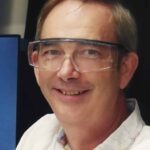
Prof Peter Thorn
Biography
Prof Peter Thorn
Professor Peter Thorn is Chair of Molecular and Cellular Physiology at The University of Sydney. Peter worked at Cambridge University for 10 years before migrating to Australia in 2006 where he relocated his lab to the University of Queensland. He moved in 2016 to the Charles Perkins Centre. His research interests centre on the control of hormone secretion within the native environment of the body.

A/Prof Tommi Vatanen
Biography
A/Prof Tommi Vatanen
Associate Professor Tommi Vatanen leads the Computational Microbial Ecology research group at the Helsinki Institute of Life Science (HiLIFE), University of Helsinki, Finland. He earned his Ph.D. in computational biology from Aalto University and has held positions at the Broad Institute of MIT and Harvard and the Liggins Institute at the University of Auckland. Prof. Vatanen’s research focuses on developing computational models and applying machine learning techniques to study the dynamics of human gut microbiomes and their implications for health and disease. His work has significantly contributed to understanding how variations in the gut microbiome are associated with conditions such as type 1 diabetes. Through his interdisciplinary approach, Prof. Vatanen aims to elucidate the complex interactions between microbial communities and human health.

Prof Bruce Verchere
Biography
Prof Bruce Verchere
C. Bruce Verchere PhD is a Professor in the Departments of Surgery and Pathology & Laboratory Medicine at the University of British Columbia (UBC), investigator at the Childhood Diabetes Laboratories at the BC Children’s Hospital Research Institute, and Director of the UBC Centre for Molecular Medicine and Therapeutics. He holds the Irving K Barber Chair in Diabetes Research, leads the BC Diabetes Research Network, and is co-director of the Breakthrough T1D Centre of Excellence at UBC. His research focuses on islet biology in diabetes, including triggers of beta cell dysfunction and death, islet inflammation, and biomarkers of beta cell function. He was awarded a Queen Elizabeth II Diamond Jubilee medal for diabetes research and service in 2012 and the Diabetes Canada Lifetime Achievement Award in 2023. He has served on a number of advisory and editorial boards, as chair and member of grant panels for CIHR, NIH, and BreakthroughT1D, and is currently an associate editor at Diabetes.
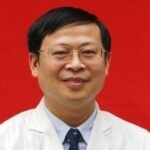
Prof Zhiguang Zhou
Biography
Prof Zhiguang Zhou
Zhiguang Zhou received his MD and PhD degrees from Hunan Medical University in China. He has trained as postdoc with Prof. Bill Hagopian at Pacific Northwest Research Institute in Seattle. Currently, he works in Department of Metabolism and Endocrinology, Second Xiangya Hospital, Central South University, Changsha, China. He is the director of National Clinical Research Center for Endocrine and Metabolic Diseases,head of Key Laboratory of Diabetes Immunology, Ministry of Education, and Honorary president of Chinese Endocrinologist Association. Dr. Zhou published over 200 peer-reviewed papers on diabetes immunology. He acts as coordinator of several ongoing trials for T1D and chairman of China Alliance for T1D.

Prof Anette-Gabriele Ziegler
Biography
Prof Anette-Gabriele Ziegler
A specialist in internal medicine, endocrinology, and diabetes, Professor Anette-Gabriele Ziegler leads the Institute of Diabetes Research at the Helmholtz Center in Munich, Germany and is Chair of Diabetes, Technical University Munich, School of Medicine. She is also one of the type one diabetes academy heads of the German Center for Diabetes Research DZD e.V. and past president of the Immunology of Diabetes Society.